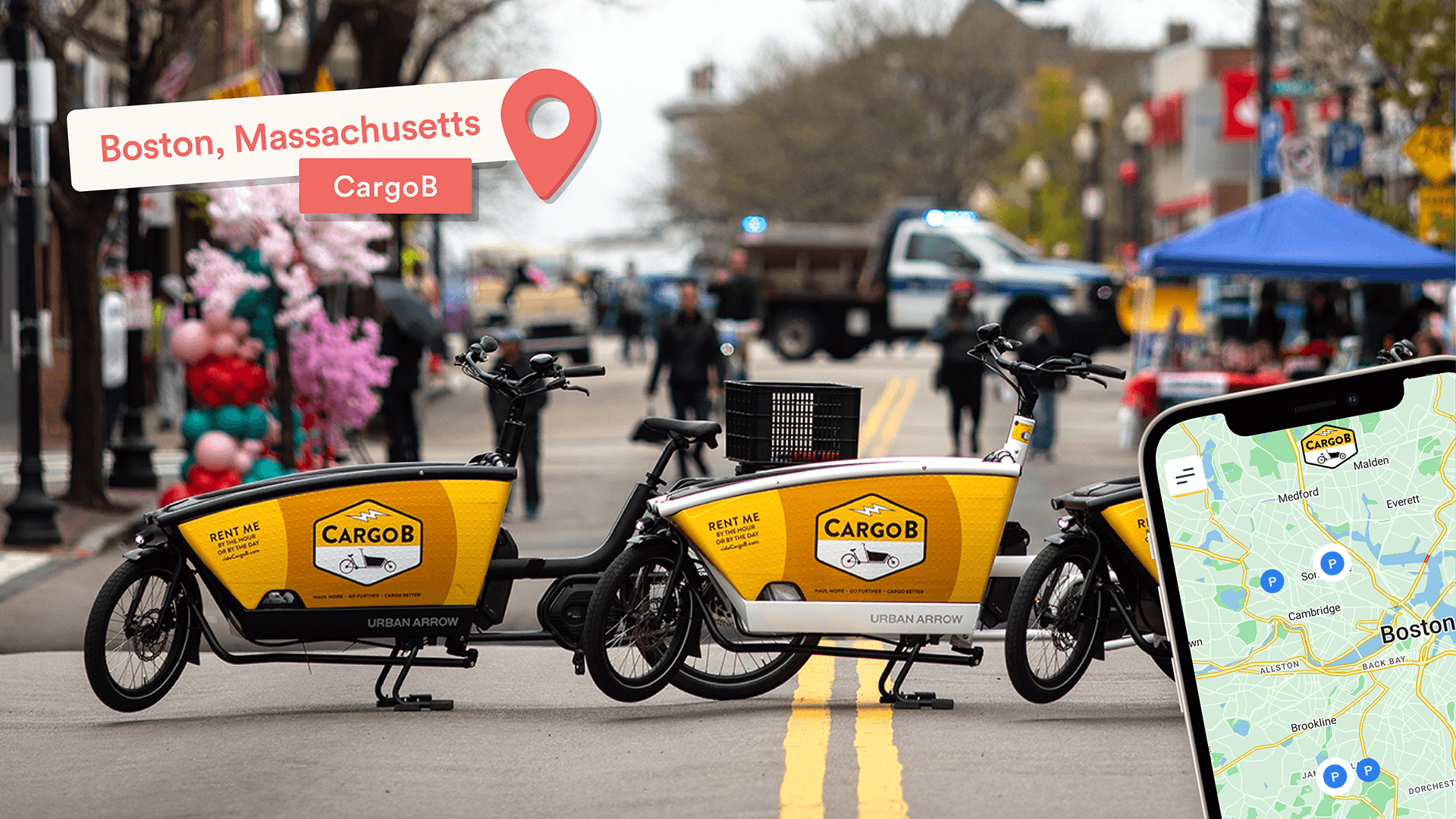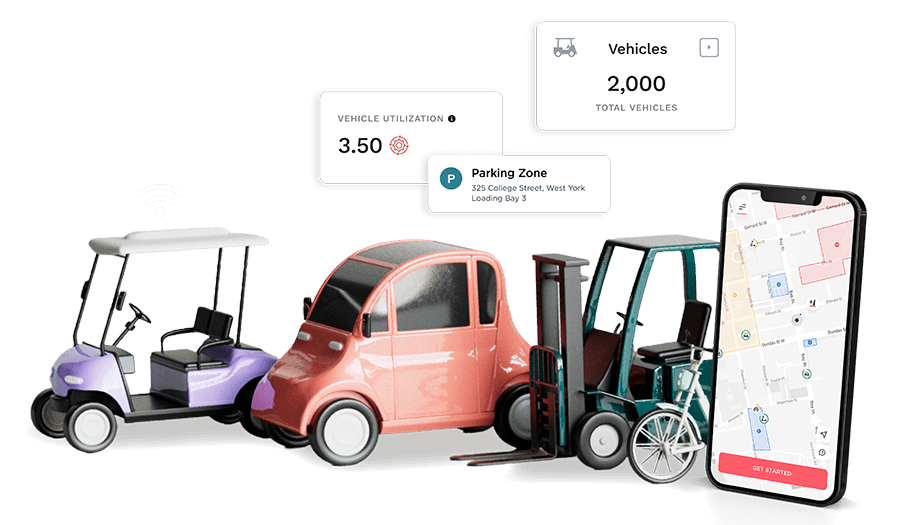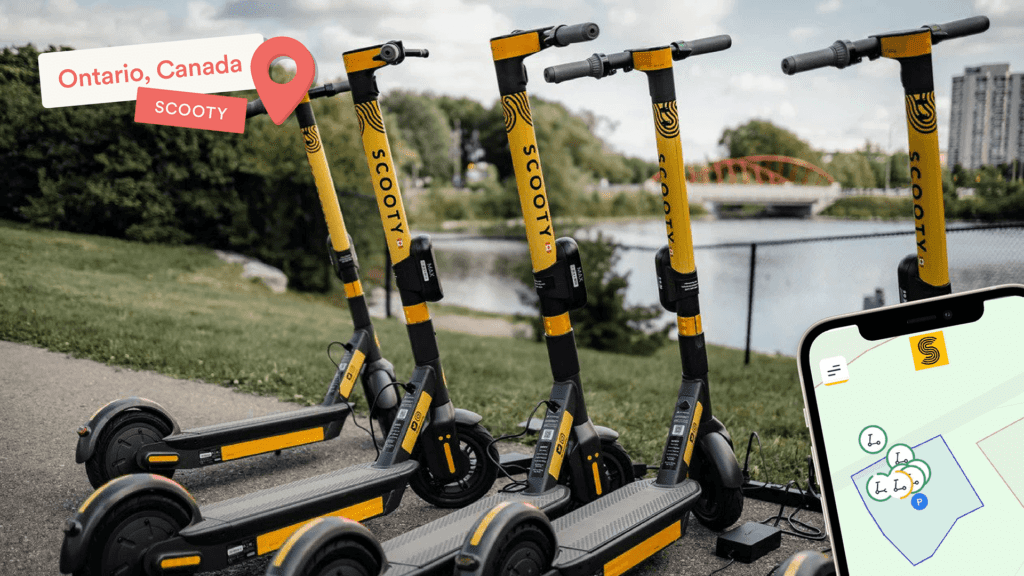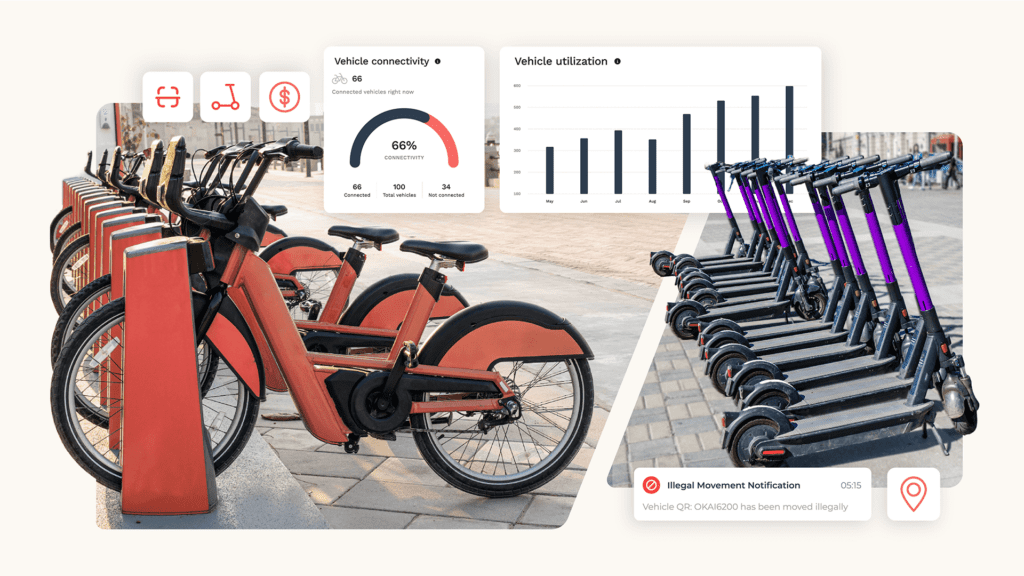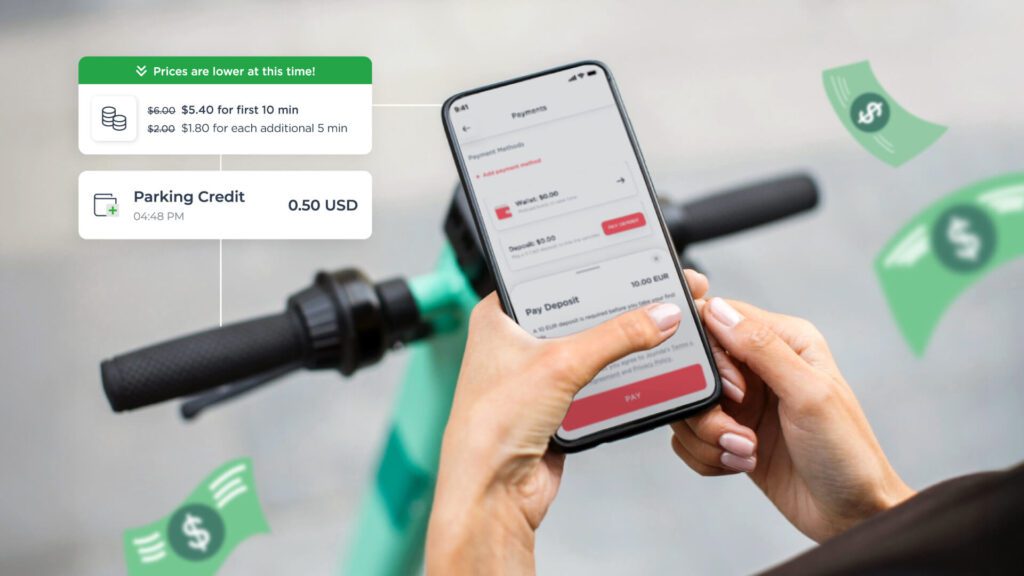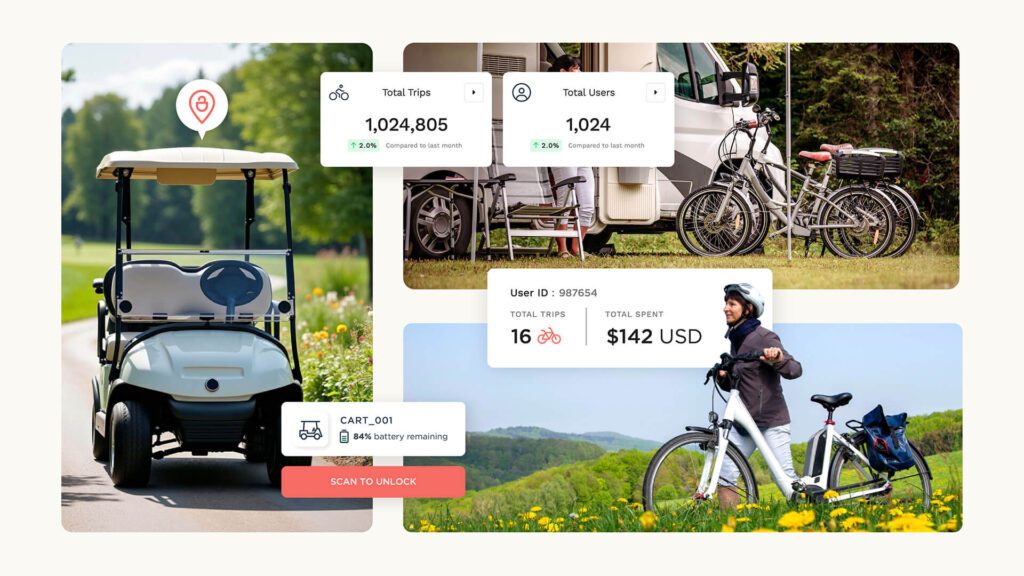Electric cargo bike-sharing has been pedaling through European streets with much enthusiasm–and the U.S. has taken note. This past spring marked the launch of the nation’s first on-demand electric cargo bike-share service, CargoB, in none other than one of the country’s oldest cities, Boston.
CargoB offers instant access to a shared fleet of “bakfiets” (pronounced “bok-feets”), otherwise known as box bikes or cargo bikes. These vehicles are rented by the minute ($0.25) or daily ($100) and used in urban neighborhoods to transport families, groceries, deliveries and more–and they’re becoming increasingly popular as consumers opt out of car ownership and shift to more sustainable (yet highly efficient) modes of transportation.
It sounds simple–and it is–but there are complexities behind launching and operating a fleet of cargo bikes. Here, CargoB co-founder and city planner Dorothy Fennell shares what led to her company’s launch, how operations are going so far and what’s next for her business and shared mobility as a whole.
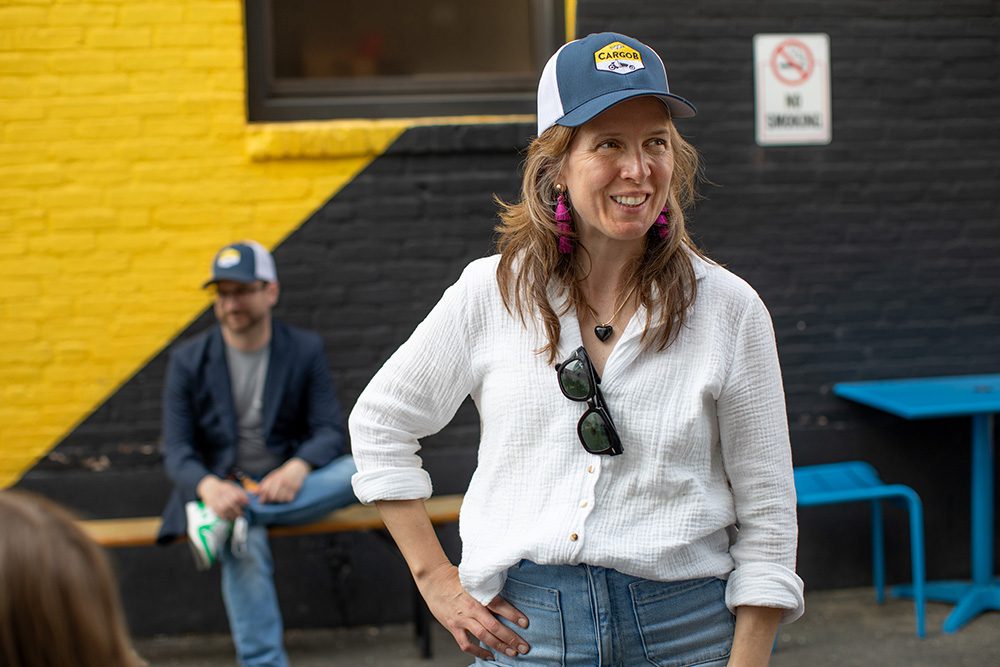
How did CargoB get started?
Dorothy Fennell: As a transportation planner, I’m constantly thinking about how to effectively move people across short distances in high-density areas. Electric cargo bikes are a new type of tool that serve as a viable solution for urban mobility challenges, it’s that simple. My co-founder, Zack DeClerck, and I had talked about doing something with electric cargo bikes beginning in August 2023. By October, we started in earnest working to establish our company, conducting research and exploring what components we needed to stack on top of one another to design a service that was seamless to use. Our goal, which we achieved, was to launch by May, National Bike Month. With bikes across Somerville, Cambridge and Boston, we are currently working on placing additional bicycles in the fleet by the end of this summer.
Aside from making history as the first electric cargo bike share in the U.S., what sets CargoB apart is that we have evolved the equation of one vehicle to one person and think more broadly to be one vehicle to one person, PLUS! And that “plus” could be children, pets, another adult or that “plus” could be things like a grocery shop, transporting goods, or supplies for a trip to the park for weekend activities.
Why is a city like Boston a prime place for shared mobility?
Boston is a city of early adopters who are keen about new innovations. Boston is already actively engaged in thinking outside the box of single occupancy car trips and have a robust transportation network and shared mobility options. We had a hunch consumers wanted access to a shared fleet of electric bikes that enabled you to easily carry large loads, and our initial market research indicated what the market lacked was cargo bike access. CargoB did something very subtle, but we believe has the potential to be quite impactful and replicable in cities across the country. We are giving consumers a new option, being the first to place a different kind of vehicle on the shared marketplace that sits between standard scooter/ bike share and car share, a cargo bike and specifically, bucket bike.
What led you to choose Joyride as your mobility software platform?
I’m not a software engineer, I’m a transportation planner. I needed a platform that does the work of helping me not just manage my fleet but also move toward constant growth, managing operations from the back end and supporting my company brand. Joyride achieved all of those objectives, and the combination of stellar customer service, long standing experience and sophisticated software capabilities made it an easy choice to trust Joyride with the management of my software needs over other alternatives.
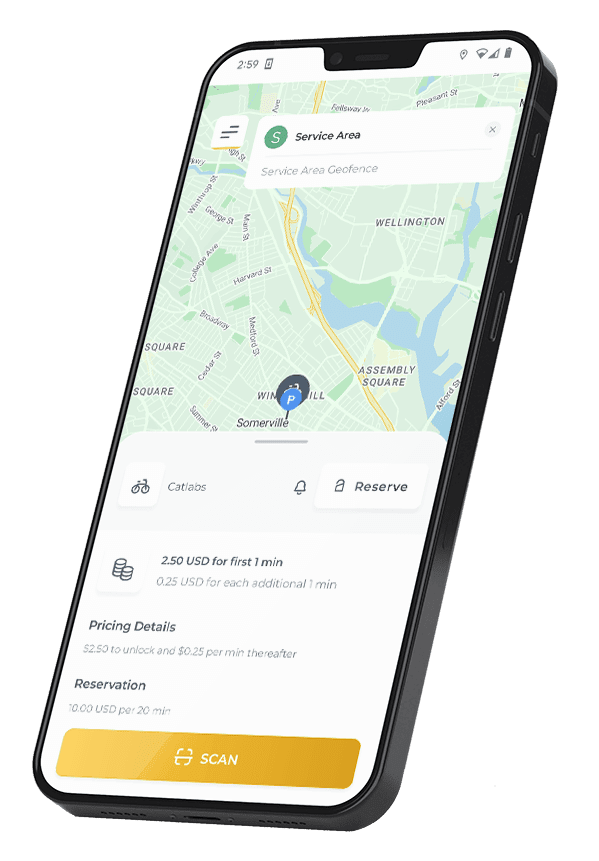
How does Joyride’s dashboard and Rider App support your operations?
Zack and I wear many hats simultaneously. It’s crucial to have a software platform that provides fleet management and a customer experience that’s not clunky. I need the ability to be in the field, log into my dashboard, identify an issue, troubleshoot the source and execute a solution, and this can’t be a time consuming process. Joyride effortlessly integrates with our locking hardware, we can track vehicle locations, manage our customers and see time stamped data of vehicle performance all in one location.
As an early-stage startup, working full time, managing three children, alongside a business partner who also has a family of his own, our main objective is proving a new mobility business concept to the US market. Our time is limited, and we have to work smarter, not harder. We rely on Joyride for back end management that emphasizes user interface and an optimal Rider App experience for customers.
Our time is limited, and we have to work smarter, not harder. We rely on Joyride for back end management that emphasizes user interface and an optimal Rider App experience for customers.
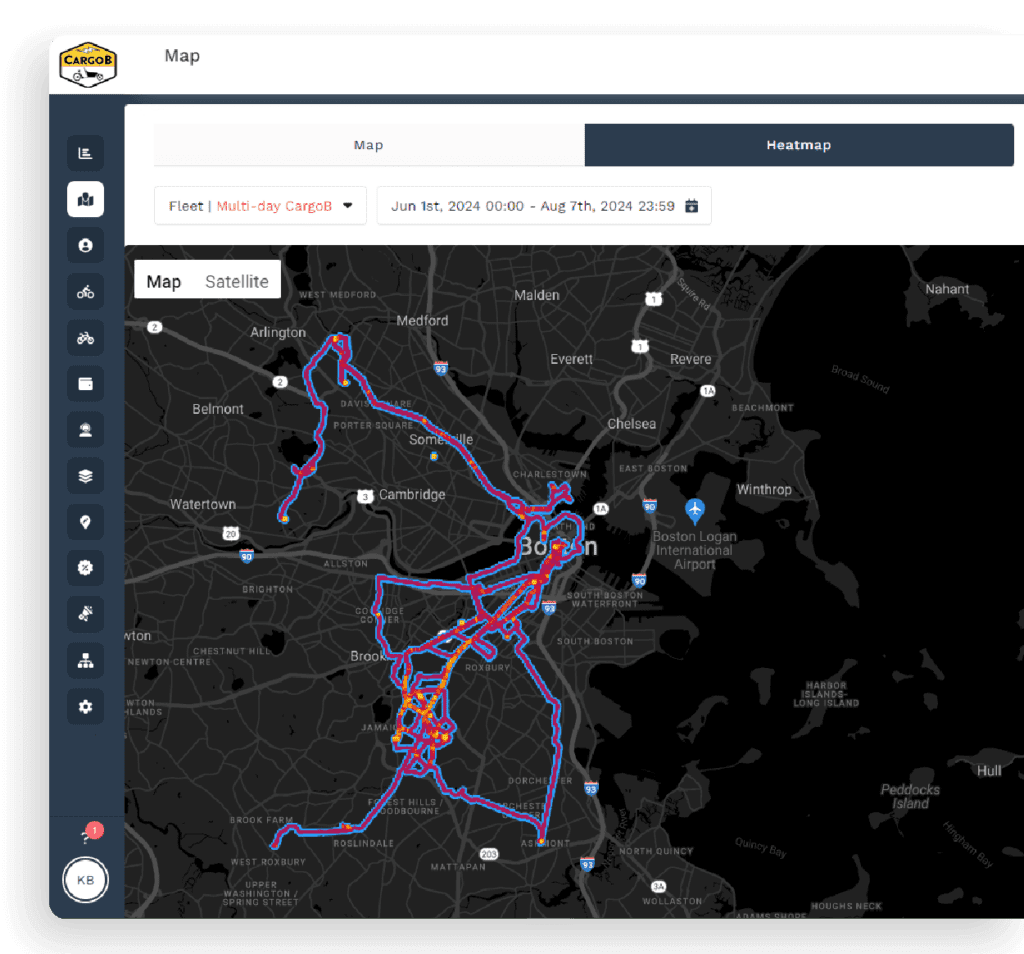
Talking about “experience,” what makes connected cargo bikes so uniquely viable for riders?
Cars, trucks, bicycles, scooters, one-wheels – these are all vehicles that serve different purposes and are suited for different environments. With CargoB we wanted to give consumers access to a type of bicycle best suited for urban mobility. Bakfiets are something consumers might be least likely to buy, but could ultimately be the most useful for effortlessly transporting large or heavy loads. With a CargoB, it’s not about maximizing the speed of your trip, it’s about making your journey more efficient, comfortable and less stressful. And for trips across town, if all things were equal in terms of having access to welcoming, convenient and safe bicycling infrastructure (which the Boston metro region is rapidly expanding), with our fleet of bakfiets designed with carrying capacity equal to the trunk of a compact car, we are steering people towards putting down the car keys and hoping on a bike.
The cargo bikes in our fleet can access bike lanes, shared use mobility paths and require a smaller footprint for parking. When you travel by CargoB in place of a car it means you’re not wasting time sitting in car traffic, struggling to find and pay for car parking or locating and spending money on gas. The electric assists make the journey effortless, so you don’t have to worry about spending excessive energy pedaling your load or arriving at your destination sweaty to the point you need to change. With CargoB, you load up the front bucket, hop on and go.
How is being a female founder in the micromobility space informing how you run your business?
As a transportation planner and mom to three, I have both a personal and practical understanding of what it means to be saddled with the responsibility of managing the mobility of children. And I think THAT experience translates to the service CargoB aims to offer our customers.
When I envision the service CargoB provides, I’m aiming for a customer experience that makes it easy to bike, even when you have to transport other things, be it people, pets or that facebook marketplace purchase.
It’s important to remember, it’s not that people don’t want to ride a bike, they lack access to the right-sized solution for their mobility needs. I’m committed to making mobility easier for these folks. I don’t have to sell “cargo bike life” to these customers, they get it because they are already looking for all the life hacks to lessen the burden of urban mobility. A good indicator of this is the number of e-cargo bike sales across the United States in the past couple of years. But for all the people who are solving their own problems and consuming cargo bikes, there are also a large number of people who aren’t because they lack awareness, are concerned about cost, or can’t manage storage or maintenance. My mantra is to take the guesswork out of the equation – because as a customer all you have to do is unlock, load up and ride on a bike.
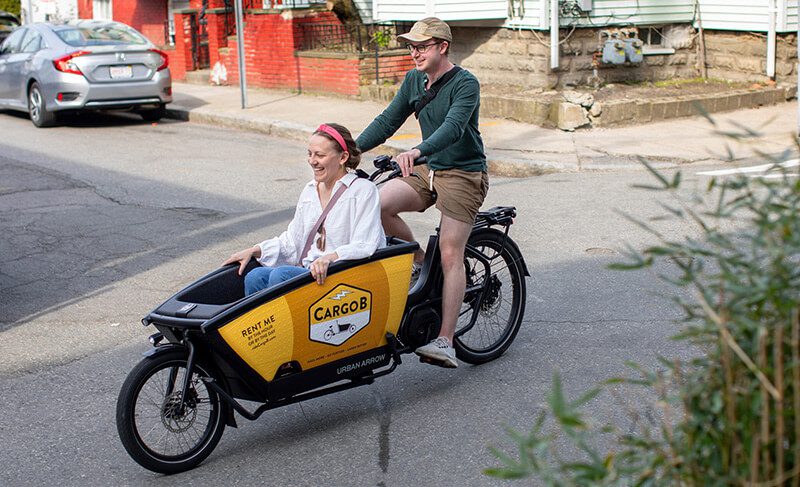
What’s next for CargoB?
We have a solid financial forecast. We know how many bikes we need in operation to be profitable and we know what scaling our operation looks like. We certainly have expansion goals. We want to be in major cities across the US in five years. Alongside those ambitions, we also have a short-term goal of raising the funds that we need to expand our Boston fleet. We are actively looking for funding opportunities to be fully scaled in Boston by March 2025.
What’s next in shared mobility?
I’m excited to see cities piloting commercial last mile delivery solutions, academic institutions driving innovative mobility research, more government-led rebate programs that encourage mode shift, and grassroots solutions like the lending libraries and bicycle kitchens that help individuals navigate consumer purchase options.
I envision a mobility landscape where policy is pushing urban design toward balancing other modes. And I’m looking forward to the manufacturing space producing the vehicles we need in order to be able to get out of our cars. I hope that we will also continue to see more frictionless access to cargo bikes that is not geared towards ownership. Our cities need safe, convenient and welcoming infrastructure supported with tailored programming that doesn’t just make multi-mobility a no-brainer, it also makes the way we move through cities equitable, livable and joyful.
For more information about connected fleet solutions and the impact of electric cargo bike sharing, contact Joyride for a full product demonstration today.
Case study
How SCOOTY connects Canadian cities with micromobility
With a $1M grant from the Ontario Government and their triumphant first season, SCOOTY shares what it takes to succeed in Canadian micromobility.
Case study
Coast Provincetown uses Joyride in this US tourism hotspot
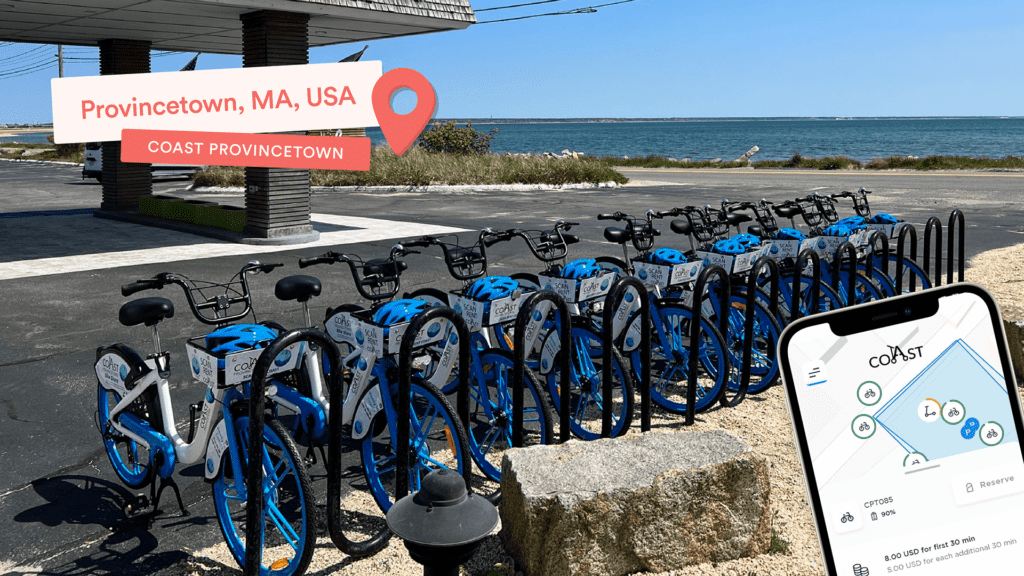
Discover the rise of micromobility in Cape Cod, as Coast Provincetown’s CEO shares the journey from eight bikes to hundreds of vehicles.

